#Hybrids
Cadillac ELR Quietly Bites the Electric Dust
Rarer than an albino squirrel, the slow-selling Cadillac ELR was apparently shuffled into the afterlife three months ago.
Cadillac confirmed to Automotive News that the Chevrolet Volt-based luxury coupe ended production at GM’s Hamtramck facility earlier this year, with remaining units now dwindling from dealer lots.
Tell this news to any random person on the street, and you’ll very likely hear back, “What’s a Cadillac ELR?”
Genesis Will Offer Plug-ins ASAP, Hyundai CEO Says
The newest luxury marque is already pursuing an electrification strategy to compete with the Germans.
Genesis, the upstart luxury division of Hyundai, rolls out its first vehicles this year, and plug-in hybrid models will soon follow, reports Automotive News.
The effort is all about battling competitors BMW, Mercedes-Benz and Porsche on their own turf. Those luxury automakers are planning to increase their hybrid offerings in a market seen as more receptive to plug-ins.
Ontario Controversy Adds More Fuel to the EV Incentive Debate
Two sides, two seemingly valid arguments. And in the middle, five $1.1 million cars.
Through the province’s Electric Vehicle Incentive Program, Ontario taxpayers helped lower the price of five Porsche 918 Spyders last year, according to Canada’s national broadcaster, leaving many wondering why their cash helped fund supercars for the ultra wealthy.
The program shaved just over $5,500 off the price of each $1.1 million hybrid Porsche — a limited edition model possessing 887 horsepower, with a top speed of 210 miles per hour.
One of those vehicles has since burned to the ground in a Toronto-area gas pump fire, which, for some, serves as a perfect metaphor for taxpayer-funded EV incentives.
Want To Beat The Honda CR-V? Sell a Hybrid
After finishing a close third behind the plunging Ford Explorer and Chevrolet TrailBlazer in 2006, the Honda CR-V went on to claim the top spot among SUVs/crossovers in America in eight of the following nine years, including the last four consecutive years.
A victorious ending to 2016 appears less certain for the CR-V. In the last five months, the best-selling utility vehicle in America was the Toyota RAV4, sales of which rose 14 percent in the first-quarter of 2016 as CR-V volume slid 3 percent.
Incidentally, the last SUV to unseat the CR-V on a calendar year basis was the Ford Escape. Back in 2011, the Escape was available with a hybrid powertrain, an option not offered by rival small SUVs. Fast forward to 2016, and the vehicle most likely to unseat the CR-V — the surging RAV4 — is likewise available with a hybrid powertrain. A meaningless, low-volume variant meant to bolster an automaker’s green cred? Perhaps that was the case with the Escape in 2011, but there’s an entirely different story to tell with the RAV4 five years later.
TTAC News Round-up: Mazda Doesn't Need No Stinkin' Hybrids, Volkswagen Rebuffs Deadline, and March Looks Like a Winner
“Hybrids? Those things that can’t make up their mind on what they want to be in life? Come on!” – Mazda.
That, Volkswagen floors the accelerator past a deadline, March looks like a boffo month for vehicle sales, Audi dials it back a bit, and getting a Tesla Model 3 depends on whether or not you’re in the club … after the break!
China Will Again Control Rare Metals in Hybrids, Other Cars
Metals found in hybrid batteries, diesel fuel and headlight glass could again be subject to China’s ever-changing rules for rare earth exports.
On Wednesday, Molycorp announced that it would be suspending its mining operations of rare earth metals in California, but keep its mines in China and Estonia open for the time being.
The company, which went public in 2011, has fallen on hard times. In June, the company filed for Chapter 11 bankruptcy protection and slowing demand in China isn’t helping. However, without a mine in the U.S., much of the rare earth metal mined in the world could be under Chinese government purview, and that’s not good.
Subaru Launches Impreza Sport Hybrid In Japan
Consumers in Japan will soon be able to purchase a new hybrid from Subaru, in the form of the Impreza Sport Hybrid.
Was the First-Generation Volt a Success or Failure?
Over the weekend, General Motors announced the 2016 Chevrolet Volt extended-range hybrid car will have a MSRP more than a thousand dollars lower than the current price of the first-generation car. The next Volt will have a base MSRP of $33,995 (including $825 as a destination fee), which GM say is about $1,200 cheaper than the 2015 Volt. With a federal tax credit of up to $7,500 still in place, the new Volt could cost as little as $26,495 before any applicable state-level subsidies.
The Volt will not only be cheaper to buy, it should be less expensive to operate. Range when running in EV mode has been increased by 31 percent to 50 miles. When powered by gasoline it will get 41 miles per gallon on the EPA’s combined traffic cycle. In comparison, the current model is rated at 38 EV miles and 37 mpg. Another economy will be gained by the fact the combustion engine will run on 87 octane gasoline, unlike the first-gen Volt requiring premium fuel.
Now that the first Volt is going away, it’s probably appropriate to perform a postmortem. Has it been a success or a failure?
DeltaWing Entering GT, Eyeing Future Showroom Debut
Coming soon to a track near you, DeltaWing will bring its signature design to the GT class, and eyes set on the showroom down the road.
Honda Jade Crossing Over To JDM From China
If the Toyota 86 style Cb isn’t your thing — and you need to haul your friends to the “Kill la Kill” convention in Osaka — perhaps the Honda Jade will do.
OEMs Delay Vehicle Alert Sounds For Pedestrians On EVs, Hybrids
As quiet as electric vehicles and hybrids are, plans to make them noisy for the benefit of pedestrians et al have been delayed until 2018.
Toyota Unveils Silicon Carbide Semiconductor Trial
Toyota unveiled its plans Wednesday to trial a new hybrid system using silicon carbide power semiconductors that could find its way into hybrids and EVs.
Manley: 2017 Jeep Wrangler Could Be A Hybrid
Are you ready for a hybrid Jeep Wrangler? The 2017 model may likely be just that to help the icon navigate through tighter fuel economy standards.
Lower Fuel Prices Mean More Savings On Green Vehicle Purchases
Just like when high fuel prices knocked down the sale price of many a truck and SUV, the current drop in price at the pump is pulling down the prices for many a hybrid, PHEV and EV.
Tesla Share Price Plummets After Musk's NAIAS 2015 Visit
Tesla shareholders felt lighter Wednesday after the automaker’s stock price fell from just over $200/share to $186.09/share after CEO Elon Musk’s announcement at the 2015 Automotive News World Congress in Detroit — held during the 2015 Detroit Auto Show — that his company wouldn’t be profitable until the start of the 2020s.




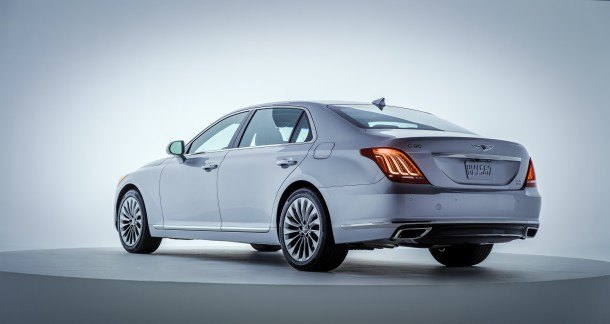

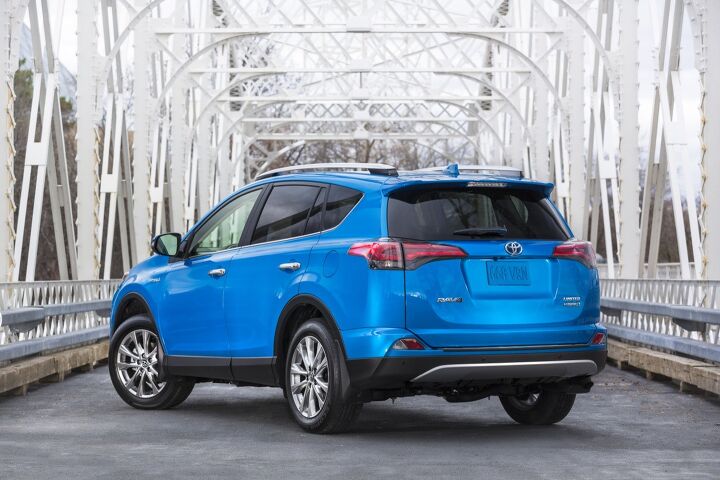

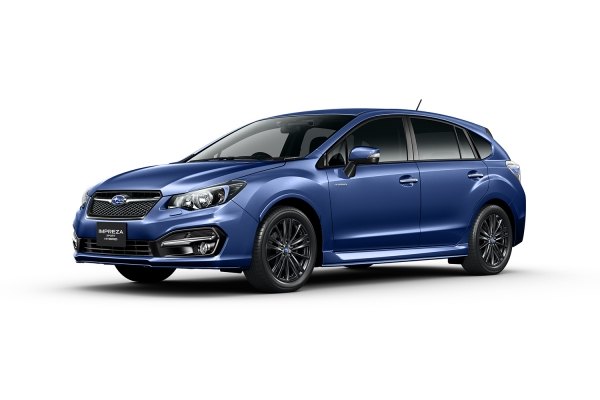
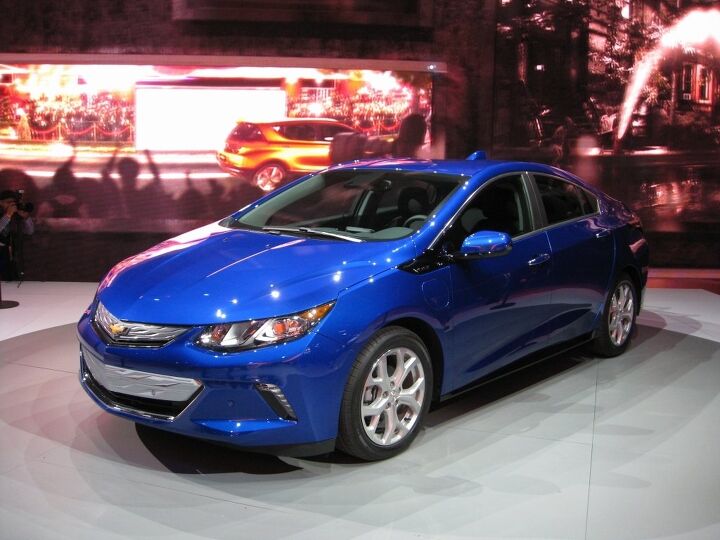





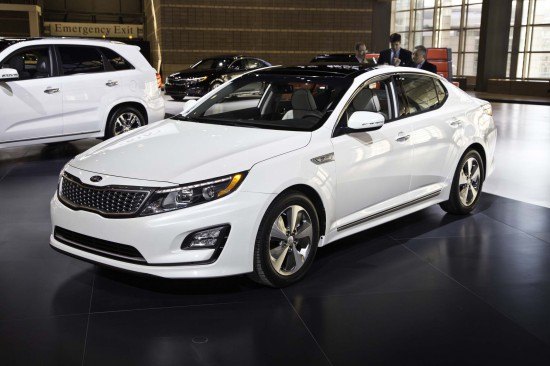













Recent Comments